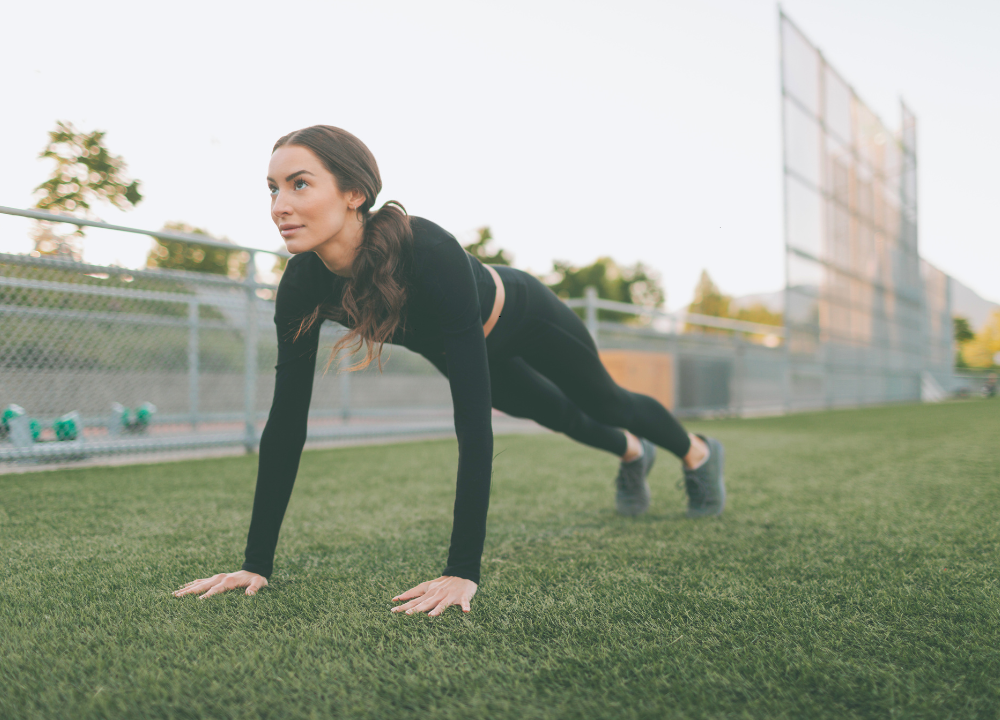
Health & Wellness
Health & Wellness encompasses maintaining a balanced lifestyle and preventing illness. It requires attention to physical, mental, and emotional well-being.
Navigating the realm of Health & Wellness is crucial for a fulfilling life. This multi-faceted approach focuses on nurturing the body, mind, and spirit to foster overall health. It’s not just about warding off sickness; it’s a proactive pursuit of vitality.
The Foundations Of Health & Wellness
The Foundations of Health & Wellness form the bedrock of a happy, productive life. Good health is not just the absence of disease or illness; it’s a dynamic state of complete physical, mental, and emotional well-being.
What Does Health & Wellness Mean?
At its core, Health & Wellness is a holistic concept. It covers various aspects of our lives, influencing how we feel, think, and act. The term encompasses:
- Physical health – maintaining a healthy body through exercise, nutrition, and sleep
- Mental health – managing stress, fostering positive thoughts, and learning continuously
- Emotional health – understanding and expressing feelings in a healthy way
- Social well-being – connecting with others and building strong relationships
- Spiritual wellness – finding purpose and meaning in life
These elements are interlinked, each playing a vital role in overall well-being. For example, poor physical health can lead to mental distress, while strong social connections can boost emotional health. A table highlighting the interconnections might look like this:
| Aspect of Wellness | Benefits | Interconnections |
|---|---|---|
| Physical Health | Energy, stamina, reduced disease risk | Supports mental clarity and emotional balance |
| Mental Health | Productivity, creativity, learning ability | Improves emotional response and social interactions |
| Emotional Health | Resilience, happiness, self-esteem | Enhances physical health and mental well-being |
Physical, Mental, And Emotional Well-being
Physical, mental, and emotional well-being are the three pillars that support a balanced life. Let’s break them down:
Physical well-being involves taking care of the body. It means:
- Eating balanced meals
- Staying active
- Getting enough rest
- Avoiding harmful habits
Mental well-being is about keeping the mind sharp and healthy. It includes:
- Challenging the brain with puzzles and books
- Practicing mindfulness or meditation
- Setting goals and celebrating achievements
Emotional well-being means acknowledging and expressing feelings appropriately. Key practices are:
- Talking with friends or a counselor
- Journaling thoughts and emotions
- Engaging in hobbies and activities that bring joy
Together, these pillars create a stable foundation for health and wellness. They allow individuals to thrive and enjoy a high quality of life. Each pillar supports and enhances the others, creating a harmonious balance. For example, regular exercise (physical) can alleviate stress (mental) and boost mood (emotional).
Physical Health
Physical health is a vital component of overall wellness. It involves the well-being of the body and the optimal functioning of its systems. Good physical health not only strengthens the body but also supports mental and emotional stability.
Importance Of Regular Exercise
Regular exercise stands as a cornerstone for maintaining optimal physical health. It offers a range of benefits that extend beyond mere physical well-being. Engaging in consistent physical activity helps to:
- Boost cardiovascular health, reducing risks of heart diseases.
- Enhance muscular strength and flexibility, which can prevent injuries.
- Improve mental health by releasing endorphins that elevate mood.
- Control weight by increasing metabolism and burning excess calories.
Exercise also contributes to better sleep patterns and fosters a stronger immune system. Individuals who partake in regular physical activity often experience improved concentration and a sharper memory. The table below illustrates some recommended exercises and their respective benefits:
| Exercise Type | Primary Benefit |
|---|---|
| Aerobic | Enhances heart and lung function |
| Strength Training | Builds muscle mass and bone density |
| Stretching | Improves flexibility and range of motion |
| Balance Exercises | Reduces fall risk and improves coordination |
Daily Physical Activities For A Healthy Life
These activities don’t have to be strenuous to be beneficial. Simple tasks like walking, taking the stairs, or gardening can significantly contribute to one’s physical health. Aim for at least 30 minutes of moderate-intensity activity each day. Consider these daily activities to stay active:
- Brisk walking or cycling for transportation or leisure.
- Using stairs instead of elevators for a quick leg workout.
- Gardening or doing household chores to stay moving.
- Playing outdoor games that require physical exertion.
Engaging in these activities helps maintain mobility and energy levels. It also serves as a natural way to manage stress and anxiety. By incorporating movement into everyday routines, individuals can significantly enhance their physical health without setting aside extra time for the gym.
Building A Balanced Workout Routine
Creating a balanced workout routine is critical for all-around fitness and injury prevention. A well-rounded regimen includes a mix of cardiovascular, strength, flexibility, and balance exercises. To build a balanced routine, follow these tips:
- Start with a warm-up to prepare the body for exercise.
- Include at least 150 minutes of moderate aerobic activity weekly.
- Add two days of muscle-strengthening activities that work all major muscle groups.
- Integrate stretching exercises to enhance flexibility.
- Incorporate balance exercises to improve stability and core strength.
Remember to tailor your routine to your personal fitness level and goals. Keep workouts varied and enjoyable to stay motivated. Listen to your body and allow time for recovery between intense sessions. A balanced approach to exercise paves the way for enduring physical health and wellness.

Mental And Emotional Wellness
Mental and Emotional Wellness are key parts of this journey. They help us handle stress, relate to others, and make choices. Good mental health leads to a balanced and fulfilling life.
Understanding Mental Health
Mental health is how we think, feel, and act. It’s about our emotional, psychological, and social well-being. To understand it, look at these points:
- A sense of contentment
- A zest for living
- The ability to deal with stress
- Sound decision making
Just like physical health, mental health needs regular care. This may include:
| Activity | Benefit |
|---|---|
| Talking to friends | Builds support |
| Regular exercise | Reduces anxiety |
| Healthy eating | Boosts mood |
Stress Management Techniques
Stress is part of life. Managing it is vital for mental wellness. Techniques to ease stress include:
- Deep breathing
- Regular exercise
- Adequate sleep
Deep breathing calms the mind. Exercise releases endorphins, the body’s natural mood lifters. Enough sleep refreshes the brain. Together, these practices keep stress in check.
Time management is also key. It helps balance work, rest, and play. Planning your day can prevent feeling overwhelmed. Remember, taking short breaks is crucial for a healthy mind.
The Benefits Of Meditation And Mindfulness
Meditation and mindfulness are powerful tools. They help us live in the present and reduce stress. Benefits include:
- Clearer thinking
- Better focus
- Less anxiety
- Improved memory
Starting with just a few minutes a day can make a difference. Close your eyes, breathe deeply, and pay attention to your thoughts and feelings. This simple act can bring peace and balance to your day.
Regular practice can lead to lasting changes. It can make you more patient and less reactive. It can also improve your relationships and overall well-being.
Healthy Lifestyle Habits
Living a healthy lifestyle is like taking care of a plant. You need to water it, give it sunlight, and protect it from pests. For us, that means eating well, moving our bodies, sleeping enough, and keeping bad habits away.
Creating A Sustainable Daily Routine
Think of your day as a puzzle. Each piece, from breakfast to bedtime, fits together to complete the picture of your health. Here’s how to put that puzzle together:
- Eat breakfast – It’s like putting gas in a car. Your body needs it to go!
- Move around – Walk, dance, jump! Your body loves to move.
- Drink water – Stay hydrated like a happy plant.
- Quiet time – Take a moment to breathe and be still.
| Time | Activity |
|---|---|
| Morning | Eat breakfast, drink water |
| Afternoon | Walk or dance, drink more water |
| Evening | Quiet time, prepare for bed |
Follow this table to build a routine that fills your day with good habits.
The Importance Of Sleep For Overall Health
Sleep is like a magic reset button for your body and mind. When you sleep:
- Your body fixes itself.
- Your brain sorts memories.
- You wake up ready for a new day.
Getting enough sleep makes everything better. Your mood, your focus, and even how you get along with others improve. Aim for 8 hours of sleep every night. Make your bedroom a cozy cave for sleeping. Keep it cool, dark, and quiet. Say goodnight to screens an hour before bed. This helps your brain know it’s time to sleep.
How To Reduce Unhealthy Habits
Unhealthy habits are like weeds in a garden. They can take over and stop good things from growing. Here’s how to pull them out:
- Know your habits – Write down what you want to change.
- Small steps – Change one thing at a time.
- Find a buddy – Team up with a friend for support.
- Celebrate wins – Happy dance for every good choice!
Changing habits takes time. Be kind to yourself. Remember, every day is a new chance to grow healthier, just like a plant reaching for the sun.

Preventive Health
Preventive Health plays a crucial role in maintaining wellness. It involves steps to ward off illness before it starts. Smart choices today lead to a healthier tomorrow.
The Role Of Regular Health Screenings
Staying ahead of health issues is key. Regular health screenings are a must. They help catch problems early, when they’re easier to treat. Think of them as a “health check-up” for different parts of your body. Here’s why they are important:
- Catch diseases early: Some conditions have no symptoms at first. Screenings find these early on.
- Track health changes: Over time, tests show if your health is improving or not.
- Peace of mind: Knowing you’re healthy can ease stress and worry.
Screenings vary by age, gender, and risk factors. A table can clarify this:
| Age Group | Screenings |
|---|---|
| 18-39 | Blood pressure, cholesterol, diabetes, eye exams |
| 40-49 | Cancer screenings, osteoporosis tests |
| 50+ | Colonoscopies, hearing tests |
How To Strengthen Your Immune System
Your immune system is your body’s shield against illness. A strong immune system means fewer sick days. Here’s how to keep it robust:
- Eat healthy: Fruits, vegetables, and whole grains nurture the body.
- Stay active: Exercise gets blood flowing and improves immunity.
- Sleep well: Aim for 7-8 hours a night to help your body recover.
- Stress less: Find ways to relax. Yoga and meditation can help.
Avoid things that weaken the immune system, like smoking and too much alcohol. Get vaccines to stay protected. They train your immune system to fight off bugs.
Tips For Preventing Common Health Issues
Many health problems are preventable. Simple changes can make a big difference. Here are tips to dodge common health issues:
- Wash hands: It’s a simple way to stop germs in their tracks.
- Stay hydrated: Water helps all body systems work better.
- Get check-ups: Regular doctor visits keep you in tune with your body.
Remember to listen to your body. If something feels off, get it checked out. Taking these steps helps keep you healthy and active, so you can enjoy life’s adventures!
Holistic Health Approaches
Today, we dive into the world of Holistic Health Approaches. This method treats the whole person. It focuses on our body, mind, spirit, and emotions.
What Is Holistic Health?
Holistic health is all about balance. It believes our well-being relies on our body, mind, spirit, and emotions working in harmony. Here’s what makes it special:
- Focus on the whole person: It looks beyond just physical symptoms.
- Preventive measures: It aims to prevent illness before it starts.
- Natural remedies: Uses nature to heal and maintain health.
Let’s look at a table comparing Holistic Health to Traditional Medicine:
| Holistic Health | Traditional Medicine |
|---|---|
| Treats the whole person | Focuses on symptoms |
| Uses natural remedies | Relies on medications |
| Preventive approach | Reactive approach |
Alternative Therapies For Wellness (e.g., Acupuncture, Yoga)
Alternative therapies play a big part in holistic health. They help heal and relax our bodies and minds. Here are some popular ones:
- Acupuncture: Uses tiny needles to treat pain and stress.
- Yoga: Combines poses, breathing, and meditation for health.
- Massage therapy: Relaxes muscles and improves blood flow.
These therapies offer many benefits. They can reduce stress, improve sleep, and even lower blood pressure. People use them along with regular medicine for the best results.
Integrating Mind And Body For Optimal Health
Integrating mind and body is key to holistic health. It means making sure our mental and physical health work together. Here’s how to do it:
- Meditation: Helps calm the mind and reduce stress.
- Healthy eating: Nourishes the body and the mind.
- Regular exercise: Keeps the body strong and boosts mood.
By combining these practices, we can reach our best health. It helps us feel happy, healthy, and balanced. Remember, taking care of both mind and body is the goal.